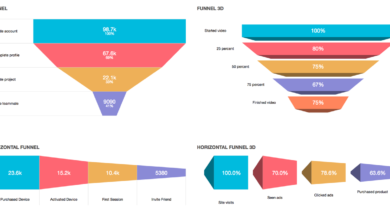Data Rooms and Financial Compliance: What To Know

Financial institutions handle large amounts of data, and stringent data management regulations can be complex. Compliance is a legal obligation and can build stakeholders’ trust. A data room assists financial institutions in navigating the complex regulatory compliance landscape. Below are the roles of a data room in verifying compliance in the finance industry: Stock Screener
Secure Document Storage
Financial institutions handle sensitive data, including personal customer information, transaction records, and reports. Securely store these documents to prevent unauthorized access, loss, or alteration, which could cause regulatory penalties and reputational damage. Get a centralized and secure platform for storing and managing these documents.
Deal rooms use encryption, two-factor authentication, and access control features where only authorized individuals can access the stored information. You get complete visibility into who has accessed what documents, when, and what actions they have taken.
The administrators can control access to specific files and folders to authorized personnel. A data room protects data during transmission and at rest, reducing the potential for data breaches or cyber-attacks. You can watermark your documents, identify any unauthorized copies, and maintain the confidentiality of information.
Restrict Access and User Permissions
Financial data is sensitive, and you should control its access. You can set specific user permissions, restricting access based on roles, responsibilities, or clearance levels. Only authorized individuals can view, edit, or share particular documents, limiting users.
Use data rooms to restrict users’ actions, including downloading or printing documents. You can manage access and permission, helping to reduce insider threats and other security incidents.
Audit Trails and Activity Monitoring
Financial institutions must adhere to data handling and privacy requirements. Internal and external process auditors should easily trace all the steps involved. Data rooms retain all logs of all data-related activities in the platform.
Monitor the activities for real-time detection of suspicious behavior or potential breaches, and deploy swift action to prevent data misuse. Activity monitoring is paramount during mergers and acquisitions (M&A). Data rooms allow the stakeholders to safely monitor all the activities and documentation as a requirement in the financial sector.
Document Version Control
You may be handling numerous documents, including contracts, financial reports, and regulatory filings that undergo multiple revisions. Managing these revisions can be challenging, but it’s required to maintain accurate records and for all stakeholders to work with the most current information.
Use a deal room to control the document version. You can track document changes, view previous versions, and revert to an older version if necessary. Version control allows document modifications, supporting accountability.
Improve Efficiency and Transparency
A data room centralizes all documents and data in a secure online platform. It is an efficient and safe way to store and exchange sensitive information. Use online data rooms to upload, share, and track real-time data. A deal room can streamline data management, saving you time and resources. This increases efficiencies during audits or regulatory inspections because you can easily access information.
A deal room promotes transparency because you can provide evidence of your data handling practices and show commitment to regulatory standards. Transparency maintains industry compliance and builds trust with regulators, customers, and other stakeholders.
Deal rooms provide financial institutions with a central repository of sensitive documents for regulatory compliance. Regulators can review records electronically, rendering company auditing easier.
Compliance With Regulatory Standards
Various regulations govern the handling, storage, and sharing of financial data. These include ISO certification, the General Data Protection Regulation (GDPR), the Sarbanes-Oxley Act (SOX), and the Financial Industry Regulatory Authority (FINRA) rules. Non-compliance may lead to hefty fines, legal consequences, and reputational damage.
Deal rooms consider these standards, offering features that support compliance. Institutions utilizing them can manage their data according to regulatory guidelines, reducing non-compliance risks.
Try a Data Room Today
Deal rooms are secure, efficient, and cost-effective platforms for financial institutions to store, share, and track sensitive information. They can improve organizational efficiency, reduce the risk of regulatory breaches, and protect sensitive information from unauthorized access. Hire a data room service provider to comply with and mitigate regulatory risks in the finance industry.
Read More about thepostpoint


